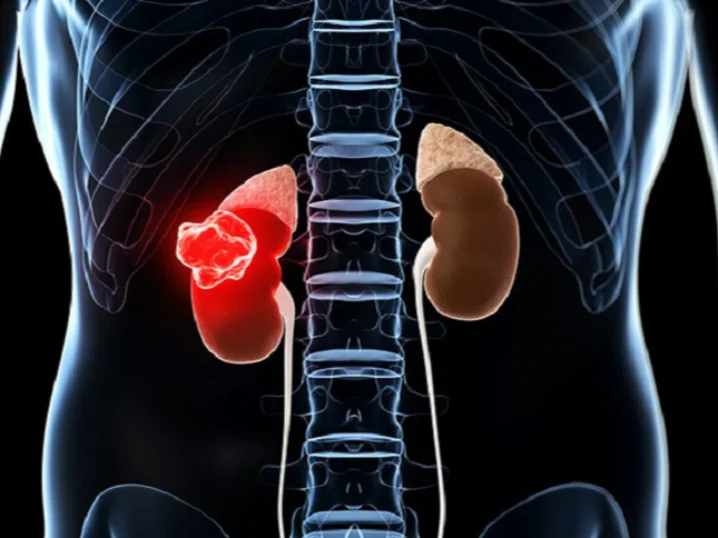The kidneys work silently, filtering blood, removing waste, and maintaining fluid balance in the body. Yet, we rarely pay attention to them until something goes wrong. Unfortunately, kidney diseases often develop unnoticed for a long time, making early detection challenging.
So, how can we tell if our kidneys are functioning properly? What warning signs should prompt us to see a doctor?
Recognizing early symptoms of kidney dysfunction is crucial, as timely intervention can help prevent serious complications like chronic kidney failure, which may require dialysis or a transplant. This article highlights key warning signs to watch for and explains why acting quickly is essential.

Unexplained Fatigue and Lack of Energy
Fatigue is a common symptom of many conditions, but when it persists without an obvious cause, it could be a sign of kidney problems. The kidneys play a key role in producing red blood cells through a hormone called erythropoietin (EPO), which stimulates the bone marrow to create these oxygen-carrying cells.
When kidney function declines, EPO production drops, leading to fewer red blood cells and anemia, which causes intense fatigue due to insufficient oxygen in the body.
Signs to watch for:
Constant tiredness, even after a full night’s sleep.
Unusual shortness of breath after minimal effort.
Difficulty concentrating, brain fog.
Pale skin and persistent cold sensation.
If these symptoms persist, a blood test can determine if anemia is present and linked to kidney function.
Unusual Swelling (Edema) 💧
The kidneys regulate fluid and salt levels. When they don’t work properly, excess water builds up in the body, leading to swelling (edema).
Edema is most noticeable in the legs, ankles, hands, and face. Some people may wake up with puffy eyelids, while others experience heavy legs by the end of the day.
Most affected areas:
Feet and ankles – difficulty fitting into shoes, heavy legs.
Hands and fingers – rings feel too tight.
Face – puffy eyelids in the morning.
If swelling persists despite rest, a doctor should evaluate kidney function.
Changes in Urine
Since the kidneys produce urine, any changes in frequency, color, or appearance could indicate a problem.
Warning signs to monitor:
Foamy urine – persistent bubbles may signal protein leakage, a sign of kidney dysfunction.
Dark-colored urine – could indicate dehydration or blood in urine, requiring medical attention.
Frequent urination – especially at night, may suggest kidney issues.
Pain or burning when urinating – often linked to urinary tract infections, but may also indicate deeper kidney problems.
A urine test can detect abnormalities early, so consult a doctor if you notice changes.
High Blood Pressure (Hypertension) 🩸
The kidneys regulate blood pressure by balancing fluids and sodium. When they’re damaged, they can no longer manage this balance, leading to hypertension.
Hypertension is both a cause and a consequence of kidney disease—high blood pressure damages kidney blood vessels, reducing their ability to function properly.
When to be concerned:
Blood pressure consistently above 140/90 mmHg.
Difficulty controlling hypertension despite medication.
Accompanied by frequent headaches, dizziness, or nosebleeds.
Regular blood pressure monitoring is crucial, especially for those at risk (diabetics, people with hypertension, or family history of kidney disease).
Lower Back Pain
Chronic kidney disease doesn’t usually cause pain, but certain kidney conditions can lead to discomfort in the lower back or side.
Possible causes:
Kidney stones – can block urine flow and cause intense, one-sided pain.
Kidney infections (pyelonephritis) – may cause back pain, fever, and discomfort.
Polycystic kidney disease – a genetic condition where fluid-filled cysts develop on the kidneys, causing pain.
If the pain is persistent and accompanied by fever, nausea, or blood in urine, seek medical attention.
Metallic Taste and Loss of Appetite
When the kidneys fail to properly filter blood, toxins accumulate, leading to bad breath, a metallic taste in the mouth, and appetite loss.
Other related symptoms:
Persistent bad breath.
Nausea or frequent vomiting.
Unexplained weight loss.
These signs may indicate an advanced stage of kidney dysfunction, requiring immediate medical attention.
What to Do If You Notice These Symptoms?
If you experience multiple symptoms, don’t wait. A blood test (to check creatinine and glomerular filtration rate) and a urine test can detect kidney disease early.
Early intervention can slow disease progression and prevent severe complications like dialysis or a transplant.
Hemofab’s Commitment to Kidney Health
At Hemofab, we understand the importance of kidney health, especially for those undergoing dialysis or needing close medical monitoring. Our mission is to develop innovative solutions to improve the quality of life for kidney patients.
Protect Your Fistula with FAV Protector
If you’re on dialysis, it’s essential to protect your arteriovenous fistula (AVF) from infections and injuries. The FAV Protector, designed by Hemofab, ensures safety and comfort during dialysis.
👉 Learn more and order now: FAV Protector
Stay Informed
We will continue sharing insights on kidney disease, treatments, and best practices for protecting your kidneys.
💙 Take care of your kidneys—they take care of you!
📩 Sign up for our newsletter to receive expert advice and stay updated on kidney health.